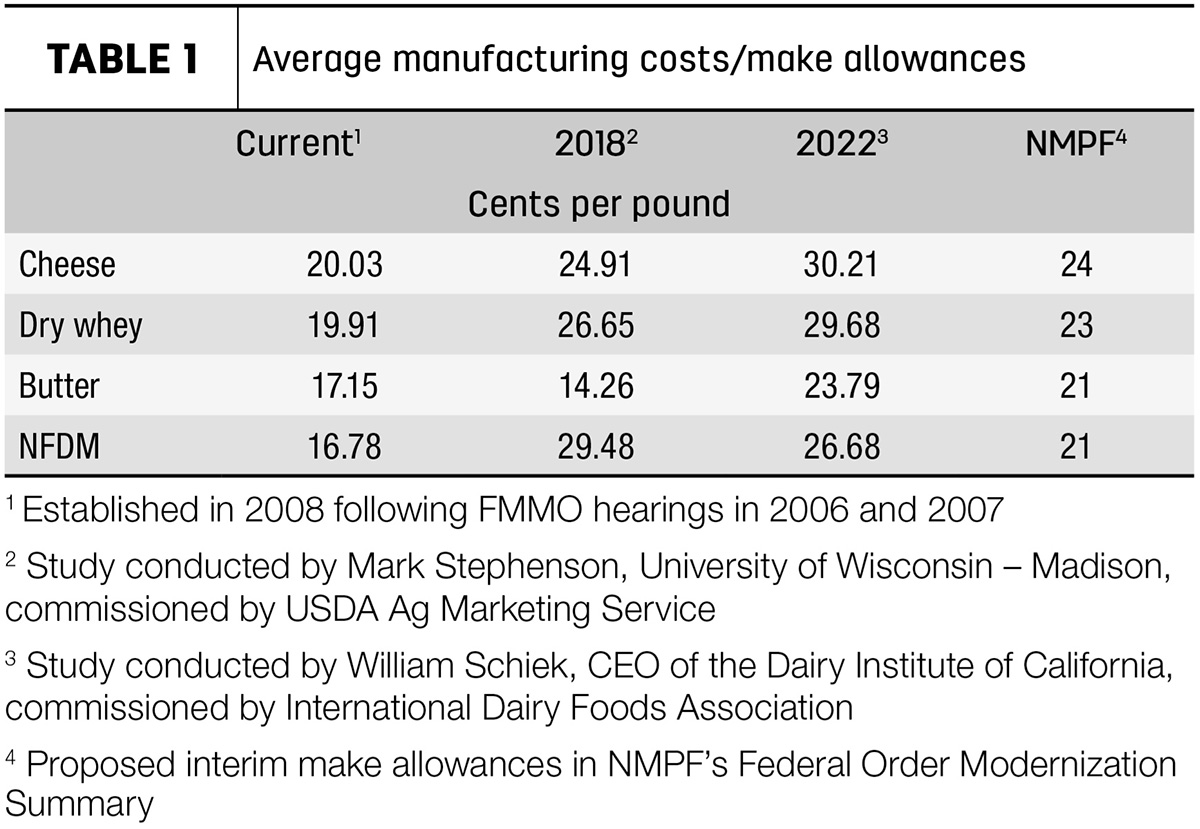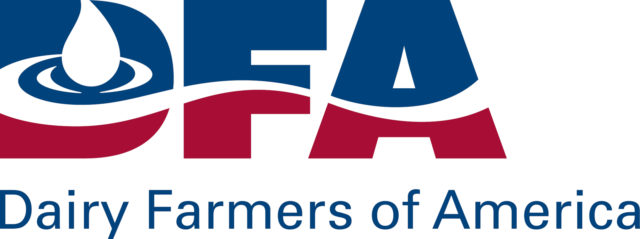Two dairy processor organizations have moved forward on submitting petitions to the USDA’s Ag Marketing Service (AMS), seeking a national hearing on updating the Federal Milk Marketing Order (FMMO) system. The petitions, submitted on March 28, focus on just one component of possible FMMO modernization or reform: manufacturing or “make” allowances.
Mike Brown, chief economist with the International Dairy Foods Association (IDFA), and John Umhoefer, executive director of the Wisconsin Cheese Makers Association (WCMA), submitted similar petitions to Dana Coale, deputy administrator of USDA AMS Dairy Programs.
Based in Washington, D.C., IDFA represents the nation’s dairy manufacturing and marketing industry. Together, they represent 90% of the milk, cheese, ice cream, yogurt and cultured products, and dairy ingredients produced and marketed in the U.S.
Based In Madison, Wisconsin, WCMA member cheesemakers, buttermakers and whey processors are located in 39 states.
Central to IDFA and WCMA petitions are make allowances, incorporated into FMMO milk pricing formulas two decades ago.
Make allowances for Class III (cheese and dry whey) and Class IV (butter and nonfat dry milk) milk are deductions manufacturers can subtract from milk prices paid to producers to cover processing costs.
With the establishment of component pricing in the 1996 Farm Bill, fixed-rate make allowances (cents per pound) were adopted in 2000 and last updated nearly 15 years ago in 2008, based on industry cost data from 2005-06.
Using FMMO end-product pricing formulas, the make allowances can be converted into dollars per hundredweight to establish actual allowable milk price deductions. Since end-product pricing formulas are also used to establish prices for Class I and II milk, the make allowances effectively reduce the regulated value of milk in all classes.
IDFA and WCMA cited two recent studies related to make allowances in their call for an FMMO hearing.
- Commission by the USDA AMS, Mark Stephenson, University of Wisconsin – Madison dairy economist, published the results of one study in late 2021. The voluntary survey involved 57 plants producing cheddar cheese, butter, nonfat dry milk/skim milk powder, dry whey and whey protein concentrate, summarizing average costs in 2018.
- In 2022, IDFA retained William Schiek, CEO of the Dairy Institute of California, to analyze and update data encompassing costs in 2022.
Current FMMO make allowances, averages reported by Stephenson and Schiek, as well as proposed interim make allowances recommended by the National Milk Producers Federation (NMPF), are listed in Table 1.

According to the IDFA petition, IDFA and WCMA have already commissioned Stephenson to update manufacturing costs for 2022-23.
Originally approved by its board in November 2021, the WCMA has recommended adoption of make allowances for milk price formulas that incorporate regular, mandatory cost of processing audits.
While noting increased make allowances mean lower regulated minimum prices paid to producers, the WCMA petition said current make allowances are well below the actual costs, limiting plant capacity and competition for milk. It also called for expedient action, saying that waiting for the 2023 Farm Bill and a lengthy FMMO hearing process to update make allowances will result in more losses.
The IDFA petition said its request could be accommodated through a short hearing, without change of methodology or FMMO formulas, but rather updating manufacturing costs.
NMPF preparing petition
In the email message to IDFA members, IDFA President and CEO Michael Dykes said IDFA has been prepared to file a petition since early February but postponed action “in a good faith effort” to find consensus on policy priorities with NMPF, an organization representing dairy producers and cooperatives. A second meeting between IDFA and NMPF, held March 27, failed to find potential areas of common ground between dairy farmers and dairy processors.
The NMPF board of directors unanimously endorsed a proposal to modernize the FMMO system at its meeting, March 7. Included in that proposal were interim make allowances updates, pending implementation of legislation to require the USDA to conduct regular, mandatory and auditable processing plant cost studies every two years. That legislation could be included in the 2023 Farm Bill, currently under development in Congress.
NMPF, which is working to finalize its FMMO modernization petition, also addresses the Class I mover, updating the Class I differential price system and more.
In addition to the petition process, proposals recently introduced in both the House and Senate compel the USDA to initiate an FMMO hearing. Sens. Kirsten Gillibrand (D-New York) and Susan Collins (R-Maine), and Reps. Nick Langworthy (R-New York) and Joe Morelle (D-New York) reintroduced the Dairy Pricing Opportunity Act in the Senate and House. These companion bills would require the USDA to initiate FMMO hearings within six months of enactment. The bills would also require the USDA to collect and report dairy product processing cost and yield data.
Read also: Updating make allowances is central to the future of Federal Milk Marketing Orders, by Tanner Ehmke, lead dairy economist with CoBank.






